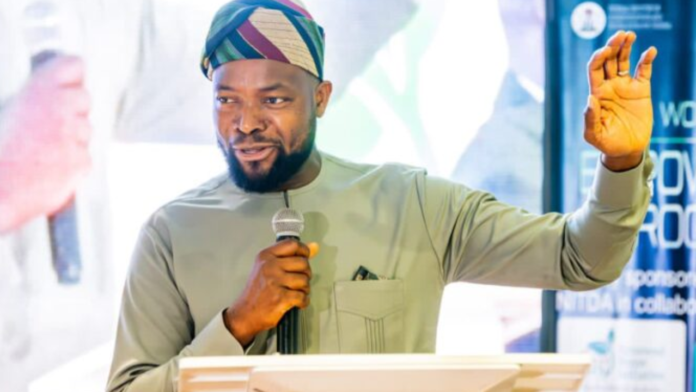Bosun Tijani, Minister of Communications, Innovation and Digital Economy, has revealed that at least 68% of Nigerian women lack access to smartphones, a barrier that limits their participation in the digital economy and access to essential online services.
Tijani revealed this during a press briefing in Abuja to mark the 2025 World Telecommunication and Information Society Day (WTISD), observed every year on May 17th.
Represented by Adeyemo Olugbenga, Director of the National Frequency Management Council Secretariat, Tijani emphasised that as Nigeria fast-tracks its digital transformation, it remains committed to inclusivity, ensuring that no one, particularly women and girls, is left behind.
The Minister reaffirmed the government’s commitment to equipping 70% of Nigerian women and girls with advanced digital skills by 2027.
He also revealed that the government is collaborating with the African Development Bank (AfDB), the World Bank, and private investors to offer grants and low-interest loans to women-led tech startups, supporting inclusive growth in the digital sector.
Represented by Adeyemo Olugbenga, Director of the National Frequency Management Council Secretariat, Tijani emphasised that the digital revolution can only be truly transformative if it is inclusive.
He stressed the importance of building a future where gender equality is not just an aspiration but a lived reality.
While acknowledging Nigeria’s progress in achieving 46.2% broadband penetration, he noted that the digital economy goes beyond infrastructure and innovation; it is ultimately about people.
He warned that when half the population continues to face barriers to access, skills, and leadership in technology, the nation is not only failing its women but also undermining its overall potential.
The Minister emphasized that achieving gender equality in the digital age cannot rest solely on the shoulders of government.
He urged the private sector to play a pivotal role by adopting gender-responsive hiring practices, investing in women-led tech hubs, and implementing workplace policies that empower women.
Highlighting the government’s commitment to inclusive digital growth, he noted that the ministry has launched several key programmes and initiatives aimed at fostering broad-based participation in the digital economy.
Among these is the National Gender Digital Inclusion Strategy (NGDIS) 2004–2077, designed to create safe online spaces for women and support their advancement in technology-driven sectors.
In terms of skills development, the minister pointed to the expansion of impactful programmes such as the 3 Million Technical Talents (MTT) initiative, the Nigeria Artificial Intelligence Research Scheme, Digital Nigeria, and efforts to strengthen local content and capacity.
Recognising the growing need for online safety, he added that the ministry is actively enhancing cybersecurity and anti-harassment frameworks to better protect women in digital spaces.
He also stressed the importance of challenging gender stereotypes by encouraging young girls to pursue Science, Technology, Engineering, and Mathematics (STEM) education from an early age.
Tijanii called on civil society organisations and the media to amplify the achievements of women in tech and hold decision-makers accountable for inclusive policy implementation.
Speaking on the theme of this year’s World Telecommunication and Information Society Day, “Gender Equality in Digital Transformation,” the minister described it as both timely and essential.
He warned that when women and girls are excluded from accessing technology, acquiring digital skills, or leading in tech sectors, it is not just their potential that is stifled—but the world’s.
The minister reaffirmed the significance of WTISD, which serves as a platform to raise global awareness about the transformative power of ICTs.
He noted that digital innovation, such as leveraging artificial intelligence to combat climate change and eradicate poverty, holds immense promise in addressing some of the world’s most urgent challenges.
BusinessDay



